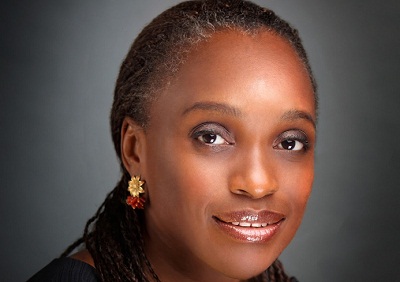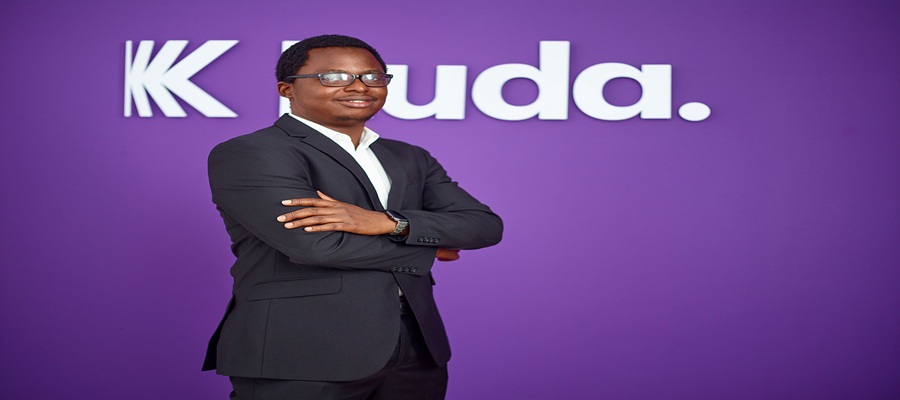E-Financial
Nigeria Marks 25th Anniversary of world Web with Affordable Internet Access

An innovative and interactive new drive to empower affordable Internet access will today unite the Nigerian government as well as key members of the Nigerian ICT industry with technology leaders from across Africa and the rest of the world on the eve of the 25th anniversary of the Web.
25 years after Web inventor Sir Tim Berners-Lee submitted his proposal for the World Wide Web (March 12, 1989), the world’s broadest technology sector coalition, the Alliance for Affordable Internet (A4AI), is bringing together government ministers, technology innovators, researchers and campaigners to drive forward the policy change, dialogue and investment needed to put internet access in the hands of millions across Africa.
The forum will aim to consolidate support for, as well as build upon ongoing efforts to increase broadband penetration in Nigeria five-fold to 30 percent by 2018.
The Nigerian government has signed a Memorandum of Understanding with A4AI and participants at the forum include Mrs. Omobola Johnson, minister of Communication Technology.
The forum will also see the launch of a new multi-stakeholder coalition that will contribute to the development of policies intended to bring in a new era of widespread and affordable internet access.
As laid out in the recently published Nigerian National Broadband Plan, the existing challenges to greater Internet and broadband access in Nigeria will be tackled head-on by: Incentivizing the deployment of a national fiber optic network across the entire country; Developing a framework that ensures the potential benefits of open access and infrastructure sharing are realized.
Others are: addressing high cost points such as spectrum prices and the cost of physical attacks on infrastructure; and Increasing citizen awareness about the possible benefits of the internet and how to use it.
According to the World Bank, eighty-four percent of Nigerians live on less than two dollars per day and 63 percent live on less than $1.25 per day. A prepaid mobile broadband user subsisting on $2 per day who wanted to use 1GB of data per month would have to spend 22 percent of their monthly income to do so.
At present, one third of Nigerians use the Internet, up from 28 percent in 2011 and 24 percent in 2010. However, the broadband penetration rate is only 6 percent.
In Nigeria, fixed broadband currently costs 39 percent of average monthly income, with a 500MB pre-paid mobile broadband plan averaging 13 percent.
The Alliance for Affordable Internet and its 55 members, whose global sponsors are Google, Omidyar Network, the UK’s Department for International Development and the US Agency for International Development, will work hand-in-hand with the Nigerian government and sector stakeholders to support the Government in the implementation of its vision for affordable broadband access to all Nigerians.
Johnson said: “We welcome the opportunity to align ourselves with other forward looking governments and members of the Global ICT industry as well the ‘unified voice and coordinated focus’ that is represented by the A4AI. We are also extremely pleased to note the common approach to tackling the problems of providing ubiquitous, affordable access to the Internet for all Nigerian citizens as is represented by our recently launched Nigerian National Broadband Plan. We view this forum as extremely timely and a key part of our consolidating internal as well as external support for the changes needed to accelerate the needed improvements in our National Broadband network”.
Sonia Jorge, executive director of A4AI said: “On the 25th anniversary of the Web, we are working to unlock the power of the internet in Africa and place it in the hands of those for whom it remains out of reach. Nigeria is one of the fastest growing markets in Africa but overcoming the challenges to increased access will not be solved by a single solution or player. Through collaboration we need to create policy and regulatory environments that reduce cost structures for providers, users and potential users of the internet environments that stimulates investment, increase affordability and encourage internet use. In Nigeria, A4AI will be focusing on reaching rural communities and those living below the poverty line, so all Nigerian women and men can realize the benefits of the Web.”
Funke Opeke, CEO of Main One said: “Main One is delighted to see the Alliance focus on Nigeria with the launch here in October 2013, followed by this forum in Abuja today. We are in agreement that the emphasis on collaboration and open access in Nigeria’s broadband plan will need to be actualized to ensure affordable internet delivery and look forward to working with other industry players and government to make the vision of affordable Internet a reality for all Nigerians.”
A4AI has grown rapidly as an coalition since its launch in October 2013, achieving a membership of over 50 organisations in just four months.
Global sponsors Google, Omidyar Network, the UK’s Department for International Development and the US Agency for International Development have been joined by a host of governments, technology companies and civil society organisations from developed and developing countries.
The group is co-ordinated by the World Wide Web Foundation, Sir Tim Berners-Lee, founded by Web inventor.
It will work in a number of countries across Africa, Asia and Latin America, and has already signed a memorandum of understanding with the governments of Ghana and Nigeria.
A4AI is advocating for open, competitive and innovative broadband markets with a focus on achieving the UN Broadband Commission Broadband Target of entry-level broadband services priced at less than 5% of average monthly income.
E-Financial
UBA launches instant digital platform for seamless account opening across Africa, diaspora

United Bank for Africa (UBA) Plc, Africa’s leading financial institution, on Tuesday unveiled a groundbreaking instant account opening platform, revolutionising banking access for millions across the continent and diaspora communities worldwide.

UBA
The fully digital innovation, accessible at ubagroup.com, empowers prospective customers to complete account onboarding online in minutes, bypassing paperwork, branch visits, and lengthy processes that have long hindered financial inclusion. Supporting Naira and Diaspora accounts with multi-language options, the platform operates seamlessly on computers, tablets, and smartphones, catering to UBA’s diverse pan-African footprint spanning 20 countries, the UK, US, France, and UAE.
Shamsideen Fashola, Group Head of Retail and Digital Banking, described the launch as a pivotal step in democratising finance. “At UBA, we are committed to redefining the customer experience through innovation and simplicity,” Fashola said. “This fully digital solution underscores our belief that banking should be accessible, secure, and truly borderless.”
The seven-step process is intuitive: customers select “Open a Savings Account,” input their Bank Verification Number (BVN), undergo facial verification, confirm an OTP, update details, upload documents, add a digital signature, and receive an instant account number. This bridges traditional banking rigour with fintech speed, incorporating digital KYC while upholding stringent security.
Built with compliance at its core, the platform adheres to Nigeria’s Data Protection Act (NDPA) and Europe’s GDPR, safeguarding user privacy amid cross-border operations. Unlike conventional methods requiring physical biometrics, it enables immediate enrolment in UBA’s digital channels, blending convenience with regulatory depth.
Alero Ladipo, Group Head of Brand, Marketing, and Corporate Communications, highlighted customer-centric design. “Today’s customers expect speed, convenience, and compliance without compromise,” Ladipo stated. “We have blended industry-leading digital onboarding with robust standards for a seamless experience matching global best practices.”
The move reinforces UBA’s dominance in technology-driven inclusion, serving over 50 million customers with 30,000 employees and pioneering retail, commercial, and institutional services. Analysts view it as a strategic edge over fintech rivals, accelerating Africa’s digital economy amid rising diaspora remittances and intra-continental trade.
As Nigeria and Africa push financial digitisation, UBA’s platform positions the bank to capture untapped markets, fostering economic growth through barrier-free banking
E-Financial
Kuda MFB Secures National Microfinance Banking Licence, Sets Stage for Nationwide Growth

Kuda Microfinance Bank (Kuda MFB) has received a license from the Central Bank of Nigeria (CBN) to operate as a National Microfinance Bank, which means that it can now have a physical presence across Nigeria.

Musty Mustapha, MD/CEO of Kuda MFB
With the Unit Microfinance Bank licence it held until December 2025, Kuda MFB’s physical operations were limited to a specific location. The national licence removes those geographic restrictions, allowing the bank to open customer experience centres in multiple parts of the country. It also regularises Kuda MFB’s licensing status in line with the Central Bank’s framework for microfinance banks.
According to the bank, the national licence is about regulatory alignment and operational flexibility rather than a shift away from its digital-first model, so it will continue to lead with digital banking services, offering Nigerians the convenience of making transfers and payments, saving, and accessing instant credit through the Kuda app.
Musty Mustapha, MD/CEO of Kuda MFB, said, “Securing a national microfinance banking licence is an important step for us as a regulated institution. It strengthens our relationship with the Central Bank and affirms our commitment to operating at the highest standards of compliance as we scale. While we remain digital at our core, this licence gives us the flexibility to create more physical touchpoints where customers want in-person support or engagement, allowing us to serve Nigerians across the country in whichever ways are most convenient for them.”
Subject to regulatory approval, Kuda MFB plans to open more experience centres designed for customer support and community engagement, in the style of its existing experience centre in Yaba, Lagos, where customers and the general public can speak directly with the Kuda team to get help and learn about the microfinance bank’s products and services.
Kuda MFB’s national licence does not change its existing product offerings or transaction capabilities, but it provides the regulatory backing for a nationwide presence.
E-Financial
NDIC Seeks EFCC’s Support to Trace, Recover Assets of Failed Banks

Nigeria Deposit Insurance Corporation (NDIC) and the Economic and Financial Crimes Commission (EFCC) have agreed to strengthen collaboration to enhance the investigation and prosecution of offences that lead to bank failures, while also improving the recovery of assets and debts of failed banks.

Thompson Oludare Sunday, managing director and chief executive of the NDIC, made this known during a courtesy visit by the Corporation’s management team to Olanipekun Olukoyede, executive chairman of the EFCC, at the Commission’s headquarters in Abuja.
In a statement issued on Sunday by the NDIC’s Hawwau Gambo, head of Communication and Public Affairs, Sunday said robust partnership with the EFCC is critical to the effective liquidation of failed banks, a process that involves asset realisation and debt recovery, with proceeds used to settle uninsured deposits.
He noted that cases of asset stripping and concealment require coordinated efforts, particularly in asset tracing, recovery and enforcement, adding that the EFCC’s expertise is vital in achieving these objectives.
Sunday also identified banking fraud investigations and the prosecution of individuals whose actions contribute to bank collapses as key areas where both institutions can further strengthen their cooperation.
He stressed that NDIC plays a vital role in maintaining financial system stability through the execution of its four statutory mandates in deposit guarantee, bank supervision, distress resolution and bank liquidation.
According to him, the Corporation’s overarching goal is to safeguard depositors’ funds, ensure prompt compensation when banks fail, and sustain public confidence in the financial system.
He also observed that both institutions share common values of integrity, professionalism and accountability, describing the visit as a step towards reinforcing institutional partnership, especially in areas where EFCC’s investigative and prosecutorial capacity is essential to NDIC’s mandate.
“We aim to further strengthen our collaboration, deepen institutional synergy and explore additional avenues for mutual support in the pursuit of national financial system stability.
“The EFCC has been our partner and we want this to continue. We look forward to an expanded and more impactful partnership between our two esteemed institutions.
“Your experience has and will continue to greatly enhance our recovery efforts. Additionally, we have that strategic responsibility for prosecuting individuals whose actions contribute to the failure of banks. We therefore seek closer collaboration with the Commission in this critical area”
Responding, the EFCC boss, Olukoyede, reiterated the Commission’s commitment to its longstanding working relationship with the NDIC in tackling financial crimes within the banking sector.
He acknowledged the history of cooperation between the two agencies, particularly in investigations and capacity development related to banking operations.
Olukoyede also briefed the delegation on key departments within the EFCC, including the Bank Fraud Section, which handles matters related to the NDIC.
He encouraged the Corporation to submit any outstanding cases for prompt assessment, noting that this would enhance tracking, accountability and case resolution.
The EFCC Chairman further highlighted the role of the Commission’s Fraud Risk Assessment and Control Department, which focuses on proactive monitoring, compliance, sound risk management and internal controls in both public and private sector institutions.
He described these efforts as part of the EFCC’s broader mandate to protect and strengthen the Nigerian economy.
Olukoyede assured the NDIC of the EFCC’s continued support in deepening institutional synergy to combat financial crimes, improve asset recovery, and ensure that offenders who undermine the banking sector are brought to justice.

 News3 days ago
News3 days agoLIRS to Invoke NTAA to Recover Unpaid Taxes from Bank Accounts, Others

 E-Financial2 days ago
E-Financial2 days agoCBN Upgrades Licences of Opay, Moniepoint, Kuda, Palmpay, Paga to National Status
- E-Financial2 days ago
Nigeria’s 9 Top FinTech Firms Valued at $10.6Bn in January 2026

 News2 days ago
News2 days agoTech Executives Double Down on AI, Talent and Adaptive Strategies to Lead in the Intelligence Age

 E-Financial2 days ago
E-Financial2 days agoNIBBS to Boost Financial Inclusion with Offline Payment Solutions

 News2 days ago
News2 days agoDHQ Indicts Brigadier General Abubakar Sadiq, 15 Others in Alleged Coup Plot againt Tinubu

 E-Business2 days ago
E-Business2 days agoFirm Identifies AI as Common Denominator in Entertainment Industry’s 2026 Security Threats

 General News2 days ago
General News2 days agoWEBINAR: Techeconomy Business Series Hosts Experts from MTN, Interswitch, BusinessPlus, others this Wednesday



























